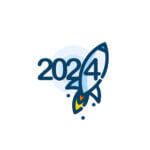In the dynamic world of online business, it’s natural to seek cost-saving measures. However, when it comes to maintaining your WordPress website, cutting corners could be a costly gamble with unforeseen consequences for your bottom line.
**Security Vulnerabilities:** Skipping monthly maintenance means missing crucial security updates, and while it may seem like a strategic move initially, the potential cost of recovering from a security breach far outweighs the savings. Cybersecurity experts, legal fees, and reputation management can result in expenses that surpass the monthly maintenance cost.
**Compatibility Issues:** Neglecting regular updates can lead to compatibility issues with newer technologies. While skipping monthly maintenance might save money in the short term, the subsequent costs of fixing broken functionalities, emergency updates, and potential revenue loss due to a degraded user experience can turn it into a financial setback.
**Performance Deterioration:** A slow-loading website can disappoint visitors and result in lost revenue. Additionally, potential revenue loss due to decreased user engagement and conversion rates can far surpass the savings from skipping maintenance.
**Loss of Data:** Regular backups are a safety net for businesses, and neglecting them can lead to significant data loss. The costs of data recovery, time, and resources needed to reconstruct lost content, along with potential legal consequences for failing to protect user data, can quickly become a financial burden.
**Diminished User Trust:** The cost of diminished user trust can have long-term financial implications. Losing customers due to an untrustworthy website can result in decreased sales, customer retention challenges, and diminished brand value, affecting the bottom line over time.
While the desire to cut costs is understandable, neglecting monthly maintenance for your WordPress website is a risky strategy that can lead to substantial and unforeseen financial consequences. Investing in regular upkeep is not just about avoiding inconveniences; it’s a proactive measure to protect your business from potential financial pitfalls in the ever-evolving digital landscape.









0 Comments